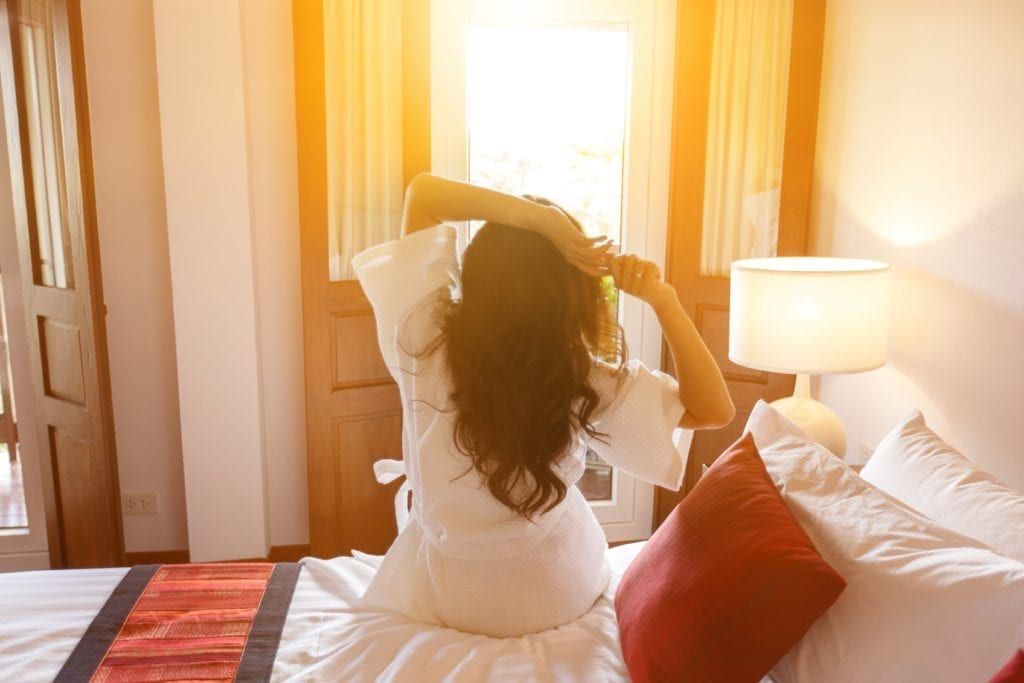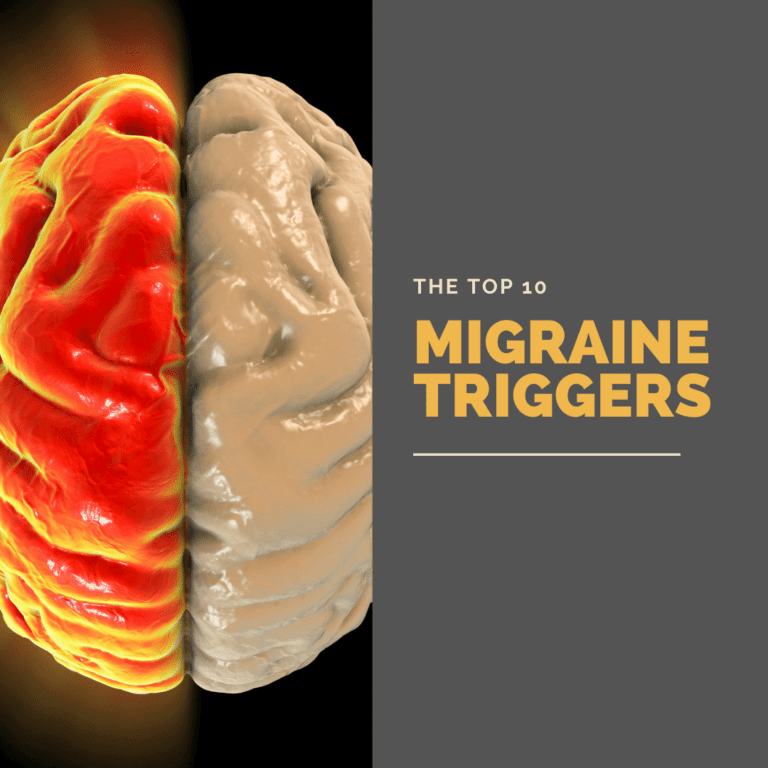Did you know that you may be able to prevent migraines from happening? Although many people think that migraines come on randomly, neurologists know that migraines often start as a result of certain migraine triggers. Experiencing a migraine once is enough to make you want to prevent another one from happening, however when you have the unfortunate experience of having regular migraines, identifying possible migraine triggers becomes essential. While everyone’s triggers may be different and you will need to identify your own personal ones, here are the top ten things that can trigger a migraine:
Stress
Stress affects the body in a number of ways and it is one of the most common migraine triggers. In fact according to the American Migraine Foundation, 70% of people with migraines have identified stress as a trigger. Not only that, but more daily stress has been associated with more frequent migraines. The best way to address stress is to take steps to minimize the source, as well as learning how to manage stress in a healthy way. Learning how to effectively deal with your stress can help to reduce the possibility of it developing into a migraine.
Hormones
Like stress, hormones also affect the body in a variety of ways. When it comes to migraines, women are three times more likely to experience migraines over men due to their hormones. Women may also experience what is known as a menstrual migraine, which is a migraine that occurs as a result of changes in estrogen and progesterone levels during her period. In fact, 75% of women have reported experiencing menstrual migraines. In some cases, migraines caused by hormones can be treated by using hormonal birth control to regulate hormone levels.
Light

Another common migraine trigger is natural light. Photophobia is the intolerance or sensitivity to light, specifically bright natural light and fluorescent light. When light is a trigger, sometimes all it takes is being exposed to certain types of lighting for various amounts of time to trigger a migraine. To prevent migraines from light you will want to wear sunglasses outside, avoid flickering lights or glare, and try to sit by a window while under artificial lights. Additionally, using green light bulbs is also encouraged since this band of light does not aggravate migraines.
Irregular Sleep Schedule
Adults need approximately 7-8 hours of sleep every night and it is recommended to maintain a consistent sleep/wake schedule. Sleeping too much, too little, or constantly changing the times when you sleep or wake can all be potential triggers for a migraine.
Weather
Yes, even weather can be a potential trigger for migraines, specifically storms, excessive heat, and changes in barometric pressure. When the weather is a possible trigger, the best thing to do is stay inside or make lifestyle changes as needed to minimize your exposure. Unfortunately, this can be easier said than done, so you may need to speak with your neurologist about how to combat weather-related migraines.
Certain Foods
What you eat definitely affects your body and there are certain foods that have been shown to be migraine triggers. Some of these foods include chocolate, caffeine, cured meats, cheese, artificial sweeteners, anything with a strong smell, and foods that contain MSG and histamine. The best way to prevent migraines from food triggers is to simply avoid foods that you have noticed cause your migraines.
Stimulants and Depressants

Stimulants like caffeine and depressants like alcohol are two culprits that can trigger a migraine. However, while caffeine can cause a migraine, in some cases it can also be used to stop a migraine. When it comes to alcohol, all types of alcohol have been shown to be potential migraine triggers, however red wine is predominantly associated with causing alcoholic migraines.
Smell
Odors are processed by nerve receptors found on the insides of the nostrils. In some cases, exceptionally strong odors can activate certain nerve receptors that may trigger a migraine. Just like photophobia is a sensitivity to light, osmophobia is a sensitivity to odors. During a migraine attack, it is common to feel an aversion to odors just like you would with light. Migraines caused by smells can be prevented by avoiding strong scents in perfume, foods, or chemicals.
Dehydration
It is recommended to drink two liters of water daily. If you are drinking less than that, especially on a hot or humid day, then it is very likely that you are dehydrated. In addition to causing dizziness and confusion, dehydration can also lead to a migraine. In order to prevent migraines from dehydration, be sure to carry a water bottle with you and stay hydrated throughout the day. If you feel a migraine coming on, it may also be helpful to drink a glass of water to see if that helps.
Medication Overuse
One unfortunate effect of migraine medication is that it has the potential to cause medication overuse headaches (MOH). This type of migraine generally occurs if you take acute migraine medication more than 10 days per month. In these cases, you will need to speak with your neurologist about discontinuing the medication.

Dr. Kashouty, a diplomate of the American Board of Psychiatry and Neurology (ABPN), practices general neurology with fellowship trained specialization in clinical neurophysiology. Dr. Kashouty finds the form and function of the nerves and muscles the most interesting part of neurology, which is what led him to specialize in neurophysiology with more emphasis on neuromuscular conditions. He treats all neurological diseases, but his main focus is to treat and manage headaches, movement disorders and neuromuscular diseases.




